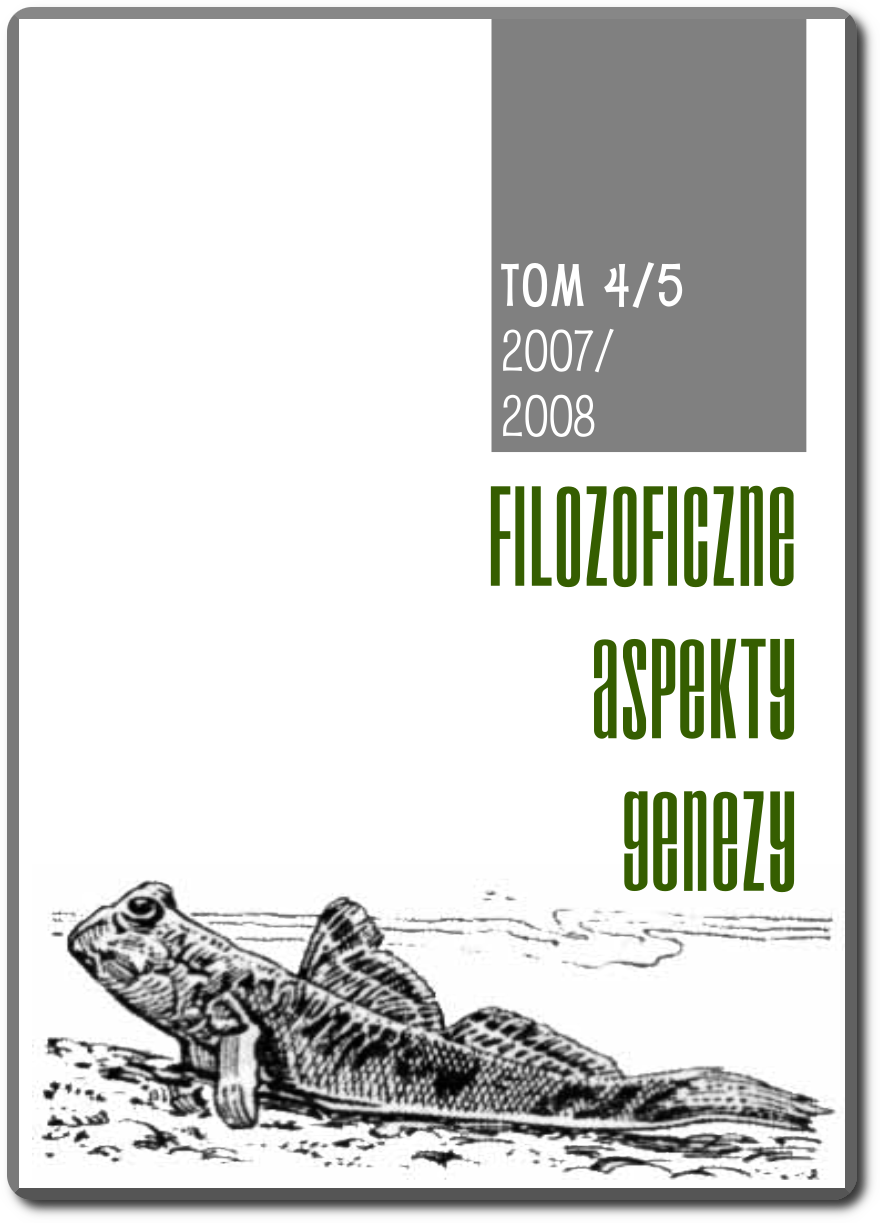Opublikowane 21.05.2021
Słowa kluczowe
- filtr eksplanacyjny,
- wyspecyfikowana złożoność,
- wyspecyfikowana złożona informacja,
- komórki Benarda,
- ciąg Fibonacciego
- przyczyny inteligentne,
- przyczyny naturalne,
- przyczyny nadnaturalne ...More

Utwór dostępny jest na licencji Creative Commons Uznanie autorstwa 4.0 Międzynarodowe.
Jak cytować
Woodward Thomas, CSI i filtr eksplanacyjny: Dembski w ogniu krytyki, Filozoficzne Aspekty Genezy 2021, pp. 95-124, https://doi.org/10.53763/fag...37
Abstrakt
Autor przedstawia koncepcję filtra eksplanacyjnego, sformułowaną przez zwolennika teorii inteligentnego projektu - Williama A. Dembskiego. Filtr ma służyć jako uniwersalne narzędzie wykrywania projektu, będącego nie tylko dziełem istot ludzkich, ale także wszelkich innych istot inteligentnych. Filtr ma mieć zastosowanie nawet na gruncie takich nauk przyrodniczych, jak biologia czy kosmologia. Autor odpowiada również na niektóre zarzuty skierowane pod adresem koncepcji Dembskiego.
Downloads
Download data is not yet available.
Bibliografia
- Woodward Thomas, Darwin Strikes Back: Defending the Science of Intelligent Design, Baker Books, Grand Rapids, Michigan 2006.
- Meyer Stephen, „The Origin of Biological Information and the Higher Taxonomic Categories”, http://www.discovery.org/scripts/viewDB/index.php?command=view&id=2177 (21.01.2008).
- Koonin Eugene, „How Many Genes Can Make a Cell?”, Annual Review of Genomics and Human Genetics 2000, vol. 1, s. 99-116.
- Shanks Niall, God, the Devil, and Darwin: A Critique of Intelligent Design Theory, Oxford University Press, Oxford, England 2004.
- Forrest Barbara and Gross Paul, Creationism’s Trojan Horse: The Wedge of Intelligent Design, Oxford University Press, Oxford, England 2004.
- Perakh Mark, Unintelligent Design, Prometheus Books, Amherst, NY. 2004.
- Young Matt and Edis Taner (eds.), Why Intelligent Design Fails: A Scientific Critique of the New Creationism, Rutgers University Press, New Brunswick, NJ. 2004.
- Dembski William A., The Design Revolution: Answering the Toughest Questions about Intelligent Design, InterVarsity Press, Downers Grove, Ill. 2004.
- Woodward Thomas, Doubts about Darwin: A History of Intelligent Design, Baker Books, Grand Rapids, Michigan 2003.
- Miller Kenneth R., „The Flagellum Unspun: The Collapse of «Irreducible Complexity»”, w: Michael Ruse and Dembski William A. (eds.), Debating Design: From Darwin to DNA, Cambridge University Press, Cambridge 2004, s. 81-97.
- Orgel Leslie, The Origins of Life: Molecules and Natural Selection, Wiley, New York 1973.
- Davies Paul, The Fifth Miracle: The Search for the Origin and Meaning of Life, Simon and Schuster, New York 1999.
- Mackay Donald, The Clockwork Image, InterVarsity Press, Downers Grove, Ill. 1974.
- Polanyi Michael, „Life Transcending Physics and Chemistry”, Chemical and Engineering News, 21 August 1967.
- Ruse Michael, Can a Darwinian Be a Christian? The Relationship between Science and Religion, Cambridge University Press, New York 2001.
- Degrasse Tyson Neil, „The Perimeter of Ignorance”, Natural History, November 2005.
- Hunter Cornelius, „Can Science Refute Design? A Book Review of Why Intelligent Design Fails”, Origins, 21 June 2005, no. 58, s. 37.
- Rolston III Holmes, Genes, Genesis and God: Values and Their Origins in Natural and Human History, Cambridge University Press, New York 1999.



